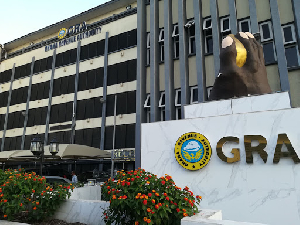



Between 2025 and 2027, it is estimated that the removal of the COVID-19 tax and the E-Levy will cost GHS 22.15 billion in revenue. Concerns have been raised over the viability of President-elect John Dramani Mahama's bold plan to eliminate these tax lines, especially in light of Ghana's current IMF-supported program. The upcoming National Democratic Congress (NDC) government's announcement to remove these two tax handles may result in a substantial revenue shortfall in Ghana's budget for the next year. Since the levies are expected to peak in 2025 in order to balance government finances despite economic challenges, this scenario poses significant concerns to budgetary sustainability.
According to Francis Timore-Boi's tax analysis report, eliminating the COVID-19 and E-levies will result in large revenue losses. While the COVID-19 Levy is anticipated to contribute GHS 3.97 billion, up from GHS 3.1 billion this year, the E-Levy is predicted to earn GHS 2.4 billion in 2025, up from GHS 2.1 billion scheduled for 2024. In 2025, the combined revenue from both levies would be GHS 6.37 billion. According to the research, removing these levies will result in a GHS 7.37 billion income shortfall in 2026, of which GHS 2.74 billion will come from the E-Levy and GHS 4.63 billion from the COVID-19 Levy.
It is anticipated that revenue losses will total GHS 8.41 billion by 2027, of which GHS 3.09 billion will come from the E-Levy and GHS 5.32 billion from the COVID-19 Levy. The total revenue loss of GHS 22.15 billion over the course of three years may have a significant effect on financing for important economic sectors. According to analysts, such a deficit might make financial strains worse and make it more difficult for the government to fund necessary operations and development projects. The government may be forced to borrow money as a result of the revenue gap, which would increase Ghana's vulnerability to economic risks and the nation's already unmanageable debt levels.
Without clear alternative revenue sources, analysts warn that eliminating these taxes could jeopardize fiscal stability and sabotage the nation's precarious attempts at economic recovery. Reducing import exemptions is the answer, according to certain industry participants. In this context, they are projecting possible tax savings of about GHS 9 billion.
About GHS 1.7 billion of the approximately GHS 3.5 billion in direct tax exemptions at the ports were authorized by the government. Furthermore, certain imported commodities have a zero rating. We could make a lot of money if those things are examined. The total estimated value of port exemptions and zero-rated imports is about GHS 9 billion. Francis Timore-Boi, a tax consultant, states that the revenue loss resulting from the removal of the two charges can be recovered if these exemptions are reduced. Although the proposed cancelation is in line with the NDC's objective of reducing the tax burden on individuals and companies, careful consideration of the economic trade-offs is necessary, particularly when it comes to closing this revenue shortfall during the continuing economic recovery.
Source: CitiNewsRoom